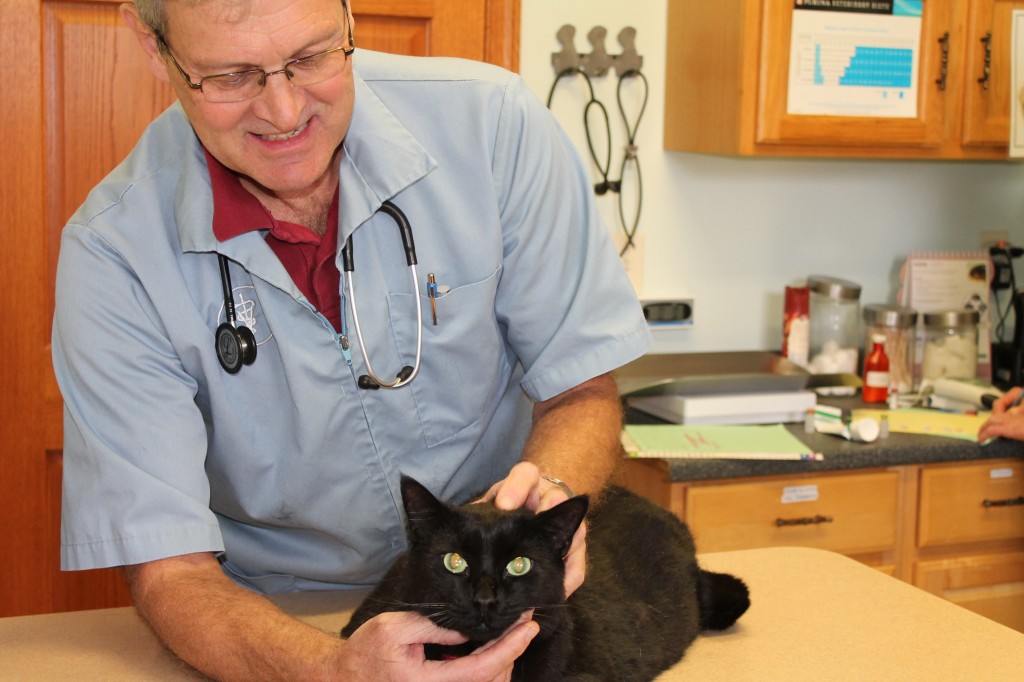Vaccinations are a hot topic today, not just for humans but also for our furry friends. From claims they have cancer-causing ingredients to shortening a dog’s lifespan, some pet parents are wondering if vaccines are really worth it.
Core Dog Vaccines
The CORE vaccines are highly recommended for all dogs:
meaning all dogs are considered to be at-risk of contracting one or more of the following potentially deadly diseases:
- Distemper
- Canine Parvovirus
- Infectious Canine Hepatitis (aka adenovirus)
- Rabies
Each of these conditions are very serious and often fatal. There is no known cure for distemper. Dogs with parvo typically need intensive hospital treatment and could still be left with lifelong problems. Rabies progresses so quickly, unvaccinated dogs will often die within a week. This is why the core vaccines are not considered optional.
Core vaccines are given in a series for puppies, typically at eight, 12 and 16 weeks of age, followed by a booster at one year of age and maintenance shots every three years…

“Rabies is highly contagious and zoonotic, meaning it’s transmittable to humans,” Dr. Eckholm says. “There is also no effective cure.”
Excluding rabies, core vaccines often come as combination vaccines—aka 5-in-1 vaccine—some of which may include additional vaccinations against other potentially deadly diseases, like leptospirosis.
Kennel Cough
Kennel cough is a highly-transmittable respiratory illness that most often affects puppies and unvaccinated dogs. Obviously, the main symptom is a persistent cough. Other symptoms include:
- Cough that sounds like honking
- Watery nasal discharge
- Retching
- Fever
- Appears otherwise healthy, including appetite and exercise
Although this vaccine is considered “non-core,” meaning it’s at the pet parent’s discretion whether or not to give it, if your dog frequently comes in contact with other dogs—like at the dog park—you should be getting the bordetella vaccine yearly to protect against kennel cough.
Dogs contract kennel cough by coming into contact with an infected dog or even drinking from the water bowl of an infected dog. (Hint: prevent this by bringing your own portable water bowl to the dog park!)
Although it is recommended yearly, it is important to note the bordetella vaccine doesn’t always work.
“Bordetella is caused by a virus, and like most viruses there are many different strains,” Dr. Eckholm says. “The effectiveness of the vaccine is dependent on the strain acquired by the dog.”
Lyme Disease
Lyme disease is a potentially deadly tick-borne illness that is also preventable. The shot is another non-core vaccine, meaning it’s typically only given to “at-risk” dogs.
Your dog is highly at-risk if you live in the northeastern or north-central parts of the United States. Deer ticks, also known as the black-legged tick, transmit Lyme disease and are most commonly found near grassy or wooded areas in these locales.
The single most effective and important thing you can do to protect your dog from Lyme disease is to regularly give tick-preventative medicines. Check for ticks daily and if you find one, have it removed immediately since it takes at least 18 hours for an attached tick to transmit the disease.
If you live in an area where Lyme disease is prevalent, the vaccine can be an added measure of protection, but it is a controversial choice among veterinarians. Some vets say most dogs who are exposed to the bacteria don’t get sick and the vaccine doesn’t protect against other types of tick-borne illnesses, so they see tick preventatives as a better choice. Other vets say even though it’s not 100% effective, vaccinated dogs are less likely to get Lyme disease than unvaccinated dogs.
Again, consult with your family veterinarian to see what’s best for your dog. If you choose the vaccine, it is initially given as a two-shot series, followed by yearly shots to maintain immunity. Your dog will need to be tested for Lyme disease prior to getting the vaccine.
Dog Flu
Our furry friends can catch the flu, too—the canine flu that is, and it’s becoming more common.
What makes the dog flu so dangerous? It’s a relatively new illness and dogs have not developed the ability to fight it off naturally, meaning most dogs who are exposed to it will get sick. Roughly 20% of exposed dogs won’t show symptoms or get sick, but are still highly contagious.
Symptoms of dog flu are the same as the human flu: runny nose, cough, and fever. There is a vaccine for canine influenza; although not 100% effective at preventing the flu altogether, it has been shown to reduce the severity of symptoms and length of the flu.
Vaccine Risk Factors
Vaccination is generally safe and very few dogs will have allergic reactions to shots. But it is important to be aware of these reactions and to monitor your dog 24-48 hours after getting any vaccinations.
Monitor your dog for any of these reactions:
- Lethargic or restless behavior lasting more than 48 hours
- Lump at injection site which appears painful or drains
- Vomiting and/or diarrhea
- Difficulty breathing
- Swollen face
- Hives (bumps) on the body
If your dog has been vaccinated before, the risk of a reaction is low. But monitor newly vaccinated dogs closely.
“Giving vaccinations at separate times can be helpful at reducing reactions,” Dr. Eckholm explains.
If your dog develops a reaction, see a vet immediately. Your dog may not be able to get that same vaccine in the future. That’s why it is so important for other pet parents to keep their non-allergic dogs up-to-date on core vaccines—to help keep dogs who can’t get vaccinated safe from deadly disease.
The Bottom Line
Modern medical ingenuity can prevent your dog from contracting a debilitating disease. Risk factors from vaccinations are low, but risk factors from these illnesses are very high, including death. It’s not worth losing your beloved pet to something that could be easily prevented.
The information in this article was provided by Dr. Nicole Eckholm and https://www.rover.com/blog/dog-vaccines/ (click link for full article)

